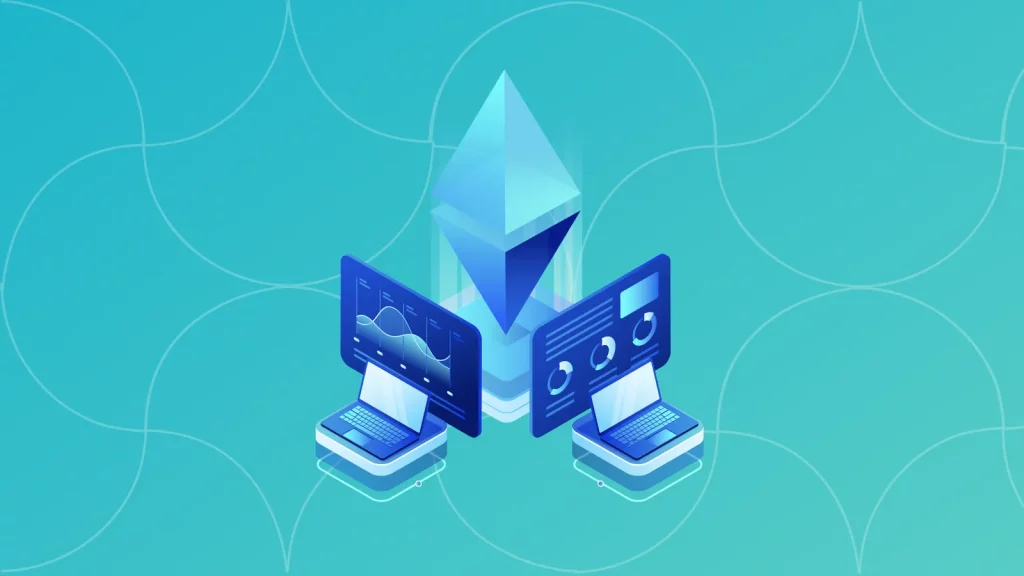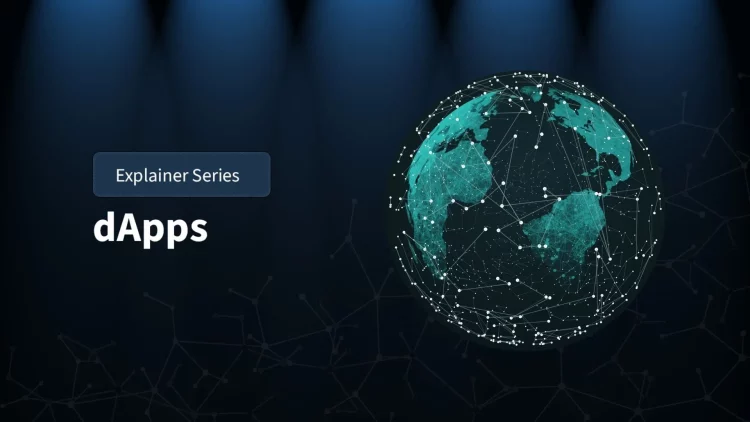Decentralized applications (dApps) have emerged as a transformative force in the world of blockchain and technology, offering a new paradigm for how applications are developed, deployed, and interacted with. Unlike traditional centralized applications that rely on a central authority, dApps operate on a decentralized network, often leveraging blockchain technology for their functionality. This decentralized nature brings with it a wide range of advantages, including transparency, security, and autonomy.
But the question remains: Can dApps fundamentally change traditional business models? In this article, we explore how decentralized applications are reshaping various industries, their potential to disrupt existing business practices, and the challenges they face in becoming mainstream.
1. What are Decentralized Applications (dApps)?
Before diving into how dApps could alter business models, it’s important to define what they are. A decentralized application (dApp) is an application that runs on a blockchain or decentralized network rather than a centralized server. The key features that distinguish dApps from traditional apps include:
- Decentralized Ownership: No single entity controls the app; it is maintained by a distributed network of participants.
- Transparency: All interactions are visible on the blockchain, ensuring data transparency and immutability.
- Tokenization: Many dApps use cryptocurrency or tokens to enable various functions, including governance, payments, or incentivization.
Popular examples of dApps include decentralized finance (DeFi) platforms, decentralized marketplaces, and decentralized social media applications.
2. How Can dApps Disrupt Traditional Business Models?
a) Decentralized Governance
In traditional business models, decisions are typically made by a central authority, whether it’s a board of directors, executives, or a single owner. However, dApps are powered by decentralized governance mechanisms that allow users to participate in decision-making processes through smart contracts and governance tokens.
- How dApps change the model: Rather than being governed by a central figure or corporation, dApps distribute control among the users of the platform. This can enable a more democratic and transparent process, where users vote on changes, improvements, or rules.
- Example: In a decentralized finance platform, token holders might vote on interest rates or the addition of new tokens to the platform. In contrast, a traditional financial institution would have a central body making such decisions behind closed doors.
Impact on Traditional Business Models:
- Shift from top-down to bottom-up decision-making: By decentralizing decision-making, dApps challenge the traditional top-down, hierarchical structures found in most businesses.
- Enhanced transparency and accountability: Decentralized governance leads to greater accountability, as all decisions are publicly recorded and accessible to all participants.
b) Tokenization of Assets
One of the most revolutionary aspects of dApps is their ability to tokenize assets. Tokenization refers to the process of converting real-world assets (like real estate, art, or stocks) into digital tokens that can be traded, bought, or sold on blockchain networks. This process can significantly alter how businesses and individuals think about ownership and trading.
- How dApps change the model: Tokenization allows businesses to fractionalize ownership, enabling more people to invest in high-value assets. This opens up markets to a much broader range of participants.
- Example: Platforms like RealT allow people to invest in fractional ownership of real estate properties by purchasing digital tokens that represent shares in a property.
Impact on Traditional Business Models:
- Breaking down ownership barriers: Tokenization lowers the barrier to entry for investors and increases liquidity in traditionally illiquid markets like real estate or fine art.
- Democratizing investments: Traditional investment models are often restricted by high capital requirements, but tokenization enables fractional ownership, allowing anyone with a small amount of capital to invest in high-value assets.
c) Disintermediation and Peer-to-Peer Transactions
In traditional business models, intermediaries (such as banks, brokers, or agents) play a crucial role in facilitating transactions. These intermediaries take a cut of the transaction, adding to the cost and complexity of business operations. dApps eliminate the need for intermediaries by enabling peer-to-peer (P2P) transactions, which can lower transaction fees, increase efficiency, and make the entire process more transparent.
- How dApps change the model: In decentralized marketplaces, users can trade directly with one another, with smart contracts ensuring that transactions are secure and transparent without the need for an intermediary.
- Example: OpenBazaar is a decentralized marketplace that allows individuals to buy and sell goods directly with each other using cryptocurrency, eliminating the need for platforms like eBay or Amazon.
Impact on Traditional Business Models:
- Lower transaction costs: By removing intermediaries, businesses can save on commission fees and other associated costs.
- Increased efficiency: Transactions can occur faster, as there’s no need to rely on third-party verification.
- More direct control for users: Consumers and businesses gain more control over their transactions and interactions, potentially shifting the balance of power away from traditional corporations.
d) Data Privacy and User Empowerment
Traditional centralized platforms often collect massive amounts of data about their users, which can lead to privacy concerns and data misuse. dApps, on the other hand, give users control over their data. With blockchain, data is stored in a decentralized, encrypted form, meaning users own and control their information.
- How dApps change the model: Users can control what data they share and with whom, and they can choose to monetize their data by sharing it with advertisers, for example, without losing control over it.
- Example: Steemit, a decentralized social media platform, rewards users with cryptocurrency for creating and curating content. Unlike centralized social media platforms, users maintain ownership over their data and earn rewards for their contributions.
Impact on Traditional Business Models:
- Empowering users: The decentralization of data means users, rather than companies, own and control their personal information, leading to a shift in how businesses interact with consumers.
- New revenue models: dApps enable new business models where users can monetize their data and contribute directly to the value generated by the platform.

3. Challenges to Widespread Adoption of dApps
While the potential for dApps to disrupt traditional business models is significant, there are several challenges that need to be overcome for widespread adoption:
a) User Experience (UX)
Many current dApps suffer from usability issues. Blockchain-based interfaces can be complex and not user-friendly, which can deter mass adoption. Unlike centralized applications, which have well-established UX patterns, dApps are often still in their early stages of development.
- Solution: Developers need to focus on improving the user experience, making dApps intuitive and easier for non-technical users to navigate.
b) Scalability
Scalability remains a key challenge for blockchain networks, especially when it comes to handling large volumes of transactions. Most dApps are built on platforms like Ethereum, which, while popular, faces limitations in terms of transaction throughput and costs.
- Solution: Solutions like layer-2 scaling and Ethereum 2.0 are being developed to address these issues, but scalability remains a hurdle for large-scale deployment.
c) Regulatory Uncertainty
Blockchain and dApps operate in a regulatory gray area in many countries. Governments and regulators have yet to fully establish frameworks for how decentralized applications should be treated legally, especially when it comes to data privacy, consumer protection, and taxation.
- Solution: Clear regulatory guidelines are needed to provide legal certainty for businesses and consumers engaging with dApps.
d) Adoption by Traditional Businesses
For dApps to disrupt traditional business models, traditional companies need to embrace them. This may be difficult for legacy companies that rely on centralized infrastructure and existing business models.
- Solution: As dApp technology matures and proves its value, businesses may be more inclined to adopt it or integrate it into their operations.
4. Conclusion: The Potential of dApps to Revolutionize Business Models
Decentralized applications (dApps) have the potential to disrupt traditional business models by decentralizing governance, enabling direct transactions, democratizing investments, and empowering users with control over their data. The core principles of transparency, security, and disintermediation are powerful, and they can provide a significant edge for businesses that adopt them early.
However, for dApps to truly change the way businesses operate, several challenges need to be addressed, including user experience, scalability, regulatory concerns, and adoption by traditional businesses.
Ultimately, while the road to mass adoption of dApps is still under development, their potential to transform industries such as finance, supply chain, healthcare, and media is undeniable. As blockchain technology evolves and more businesses recognize the benefits of decentralization, dApps may very well reshape the future of commerce and business as we know it.













































